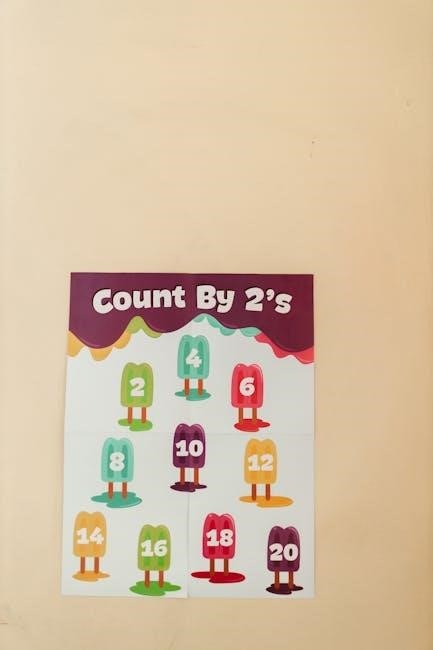The 12 Promises, detailed in Alcoholics Anonymous, offer a hopeful roadmap for recovery, outlining positive transformations experienced through the 12 Steps program.
These Promises aren’t guarantees, but potential realities for those diligently working towards sobriety and spiritual growth within the AA fellowship, offering solace and hope.
Millions globally have found comfort and a path forward through AA, and these Promises articulate the benefits of embracing the program’s principles and practices.
What are the 12 Promises?
The 12 Promises, as articulated in the foundational text of Alcoholics Anonymous, represent anticipated benefits experienced by individuals actively engaged in the recovery process through the 12 Steps. They aren’t pledges from a higher power, but rather descriptions of positive changes that often materialize as one works the program with dedication and honesty.
These Promises range from experiencing freedom and happiness to comprehending illusions and gaining a spiritual awakening. They address core struggles of addiction, such as regret over the past and the inability to manage character defects. Each Promise directly correlates to a specific aspect of recovery addressed within the 12 Steps.
The Promises emphasize the potential for profound personal transformation, including improved self-perception, the ability to make amends, and ultimately, receiving divine assistance in maintaining sobriety. They offer a compelling vision of a life beyond the control of alcohol, filled with serenity and purpose. They are being realized by thousands.
The Significance of the Promises in Recovery
The 12 Promises hold immense significance in the recovery journey, serving as beacons of hope and tangible goals for individuals navigating the challenges of sobriety. They offer a compelling vision of what’s possible when actively working the 12 Steps, shifting focus from the despair of addiction to the potential for a fulfilling life.
These Promises aren’t merely wishful thinking; they represent the lived experiences of countless individuals who have found lasting recovery through AA. They provide encouragement during difficult times, reminding individuals that progress is being made, even when it’s not immediately apparent.
Understanding the Promises fosters a sense of optimism and reinforces the belief that change is achievable. They also highlight the spiritual dimension of recovery, emphasizing the importance of surrender, faith, and connection to something greater than oneself. They are a powerful tool for maintaining motivation and commitment to the recovery process.
Historical Context: Origin of the Promises
The 12 Promises originated within the foundational text of Alcoholics Anonymous, often referred to as “The Big Book,” published in 1939. They were born from the early experiences of the fellowship’s founders – Bill Wilson and Dr. Bob Smith – and the initial members who sought a path to sobriety.
These Promises weren’t conceived as abstract ideals but rather as observations of the positive changes experienced by individuals actively applying the 12 Steps. They represent a distillation of the core principles and benefits discovered during those formative years of AA’s development.
Chapter 6 of “The Big Book” specifically details these Promises, presenting them as potential outcomes for those committed to the recovery process. They were intended to offer hope and encouragement, demonstrating that a transformed life was attainable through consistent effort and spiritual awakening.

Understanding Each Promise Individually
Each of the 12 Promises offers a unique facet of potential recovery, detailing specific benefits attainable through dedicated work with the 12 Steps program.
Promise 1: Freedom and Happiness
The first of the 12 Promises declares, “We will be free from the mental obsession with alcohol, and never have a craving again.” This isn’t a claim of instant, permanent eradication of all discomfort, but a profound shift in mental state;
Initially, this freedom may feel elusive, but consistent application of the 12 Steps gradually diminishes the power of obsessive thoughts and compulsive behaviors surrounding alcohol. It suggests a liberation from the internal tyranny that previously dictated choices.
Furthermore, the Promise extends to experiencing genuine happiness – a state not reliant on external substances or circumstances. This happiness arises from inner peace, self-acceptance, and a restored connection to life, fostering a sense of well-being previously obscured by addiction. It’s a foundational promise, setting the stage for further growth.
This freedom and happiness aren’t passively received; they are actively cultivated through consistent effort and surrender to the recovery process, offering a hopeful vision for a fulfilling life.
Promise 2: Releasing the Past
The second Promise states, “We will not regret the past nor wish to shut the door on it.” This isn’t about forgetting past actions, but rather ceasing the destructive cycle of rumination and self-condemnation that often accompanies addiction.

Acknowledging past mistakes is crucial, but dwelling on them prevents present-moment living and hinders recovery. The Promise encourages acceptance of the past as a learning experience, recognizing that it shaped who we are today.
Importantly, it doesn’t advocate ignoring the consequences of past actions; instead, it promotes making amends where possible and using those experiences to foster growth and prevent future harm. Shutting the door implies denial, while acceptance allows for healing.
Releasing the past frees up emotional energy for present-day living and building a brighter future, fostering self-compassion and a more hopeful outlook on life, essential for sustained sobriety.
Promise 3: Comprehending the Illusions
The third Promise declares, “We will comprehend and be able to deal with our illusions.” This speaks to the distorted perceptions and self-deceptions that fueled the alcoholic’s behavior. Addiction often creates a false reality, masking underlying pain and insecurities.

These illusions might include believing one can control their drinking, minimizing the harm caused to themselves and others, or clinging to unrealistic expectations. Comprehending these illusions requires honest self-assessment and a willingness to confront uncomfortable truths.
Through the 12 Steps, particularly the Fourth and Fifth Steps (moral inventory and confession), individuals begin to dismantle these false beliefs and gain clarity about their motivations and patterns;
Dealing with illusions isn’t about eliminating all fantasies, but about recognizing them as such and making conscious choices based on reality, leading to healthier relationships and a more authentic life.
Promise 4: Confession and Peace of Mind
The fourth Promise states, “We will confidently identify our character defects and begin to shed them.” This builds upon the previous Promises, emphasizing the importance of honest self-reflection and acknowledging personal flaws. For many alcoholics, shame and guilt are constant companions.
Confession, as practiced in the Fifth Step, isn’t about self-condemnation but about releasing the burden of secrecy and seeking spiritual cleansing. Sharing these defects with a trusted sponsor and, if appropriate, others, diminishes their power.
This process fosters humility and opens the door to growth. Identifying these defects allows for targeted work through the remaining Steps, gradually replacing negative patterns with positive ones.
The resulting peace of mind isn’t the absence of struggle, but a newfound serenity stemming from self-awareness and a commitment to change, paving the way for a more fulfilling life.
Promise 5: Identifying Personal Defects
Promise Five declares, “We will confidently identify our character defects and begin to shed them.” This crucial step in recovery acknowledges that alcoholism isn’t solely a physical disease, but deeply intertwined with personality flaws and negative behavioral patterns.
Identifying these defects – such as dishonesty, selfishness, resentment, and fear – requires brutal honesty and a willingness to confront uncomfortable truths about oneself. This isn’t a process of self-condemnation, but rather a necessary step towards self-improvement.
The AA program encourages a thorough “moral inventory” to pinpoint these character defects, often utilizing the guidance of a sponsor. Recognizing these flaws is the first step towards relinquishing their control.
Shedding these defects isn’t immediate, but a gradual process of replacing them with virtues like honesty, humility, and compassion, leading to a more peaceful and fulfilling existence.
Promise 6: Moral Inventory and Character Development
Promise Six states, “We will confidently identify our character defects and begin to shed them.” This builds directly upon Promise Five, emphasizing the active process of self-examination and growth. A thorough moral inventory, as suggested in the 12 Steps, is central to this development.
This isn’t merely listing wrongs; it’s a deep dive into past behaviors, motivations, and the impact on oneself and others. Identifying patterns of harmful conduct is crucial for breaking free from destructive cycles.
Character development isn’t about achieving perfection, but about consistent effort to cultivate virtues and replace negative traits with positive ones. Honesty, humility, and willingness are key.
Through continued work with the Steps and support from the AA fellowship, individuals can experience genuine transformation, leading to a more fulfilling and purposeful life, free from the grip of addiction.

The Promises and the 12 Steps
The 12 Promises are intrinsically linked to the 12 Steps, unfolding as individuals actively work the program and embrace its principles for lasting recovery.
Promise 7: Removing Character Defects
Promise 7 states, “We will suddenly realize that God is doing for us what we could not do for ourselves.” This profound shift occurs as individuals consistently apply the 12 Steps, particularly through rigorous self-examination and honest assessment.
Character defects, deeply ingrained patterns of negative behavior, hinder spiritual growth and perpetuate the cycle of addiction. The Promises suggest that through surrender and reliance on a Higher Power, these defects begin to dissolve.

This isn’t a passive process; it requires dedicated effort in identifying, admitting, and actively working to overcome these flaws. As outlined in the Big Book, this involves moral inventory, confession, and making amends.
The realization that a power greater than oneself can facilitate change is central to this Promise, fostering humility and acceptance. It’s a gradual unveiling, not an instantaneous fix, but a continuous process of refinement.
Ultimately, this Promise offers hope that even deeply rooted character flaws can be addressed with divine assistance and consistent effort, paving the way for a more fulfilling and peaceful life.
Promise 8: Making Amends
Promise 8 declares, “We will be able to show everyone our gratitude.” This stems directly from the preceding work of identifying and addressing past wrongs through a thorough moral inventory and subsequent amends-making process.
Making amends isn’t about seeking forgiveness or absolution, but rather about taking responsibility for harmful actions and attempting to repair the damage caused. It’s a selfless act, focused on restoring relationships and alleviating suffering.
The 12 Steps emphasize direct amends to those harmed whenever possible, except when doing so would cause more harm. This requires careful consideration and often, guidance from a sponsor.
As individuals actively engage in making amends, a profound sense of relief and freedom emerges, releasing the burden of guilt and shame. This liberation allows for genuine gratitude to flourish.
The ability to express sincere appreciation to others signifies a transformation in character, reflecting humility, honesty, and a willingness to acknowledge the positive influences in one’s life, as detailed in the Big Book.
Promise 9: Restitution and Serenity
Promise 9 states, “We will surely be able to live one day at a time without dreading the future.” This follows naturally from making amends, as resolving past wrongs clears the path for present-moment living.
Restitution, beyond simply repaying debts, involves a commitment to living a life that actively seeks to make things right. It’s a continuous process of ethical conduct and responsible behavior.
The 12 Steps encourage focusing on the present, acknowledging that dwelling on the past or fearing the future only fuels anxiety and prevents genuine recovery. This mindful approach cultivates inner peace.
Serenity isn’t the absence of challenges, but rather the ability to navigate them with grace and acceptance. It’s a byproduct of surrendering to a higher power and trusting the process.
As outlined in the 12 Promises, living one day at a time, free from the weight of past regrets and future anxieties, unlocks a profound sense of calm and contentment, fostering lasting sobriety.
Promise 10: Improved Perception of Self
Promise 10 declares, “We will instinctively feel a sense of uselessness and all self-pity will vanish.” This transformation stems from the rigorous self-examination inherent in the 12 Steps.
Through moral inventory and amends, individuals confront their character defects and harmful behaviors, dismantling the distorted self-image cultivated during active addiction. This honest appraisal is crucial.
Previously, self-pity and a sense of inadequacy often fueled the cycle of alcoholism. However, taking responsibility for one’s actions and seeking to make amends fosters self-respect.
The 12 Promises suggest that as we grow spiritually, we begin to recognize our inherent worth, independent of external validation or past mistakes; This newfound self-acceptance is liberating.
This isn’t about arrogance, but a quiet confidence born from genuine self-awareness and a commitment to living a purposeful life, free from the shackles of self-loathing and despair.
Promise 11: Spiritual Awakening
Promise 11 states, “We will suddenly realize that God is doing for us what we could not do for ourselves.” This isn’t necessarily about religious conversion, but a profound shift in perspective.
Throughout the 12 Steps, individuals surrender their will to a higher power – however they define it – acknowledging their powerlessness over alcohol and their lives. This surrender unlocks a new dimension.
A spiritual awakening involves recognizing a force greater than oneself, offering guidance, strength, and hope. It’s a realization that recovery isn’t solely reliant on willpower or self-effort.
This awakening often manifests as a sense of peace, purpose, and connection to something larger than oneself, diminishing the cravings and anxieties that once dominated life.
The 12 Promises highlight that this divine assistance isn’t a passive event, but a dynamic process unfolding as we consistently practice the principles of AA and remain open to grace.
Promise 12: Divine Assistance in Recovery
The final promise, “Having had a spiritual awakening as the result of these steps, we tried to carry this message to alcoholics, and to practice these principles in all our affairs,” signifies a complete transformation.
It’s not merely about achieving sobriety, but about embodying a new way of life guided by spiritual principles, extending beyond the confines of AA meetings and into daily interactions.
This promise emphasizes the importance of service – sharing the hope and experience with others still suffering, and applying the 12 Steps to all aspects of life, not just alcohol-related challenges;
Divine assistance isn’t a one-time event, but a continuous flow of support available as we remain connected to our higher power and actively work the program.
The 12 Promises culminate in a life of purpose, gratitude, and ongoing growth, fueled by faith and a commitment to helping others find the same freedom from addiction.

Applying the Promises to Daily Life
Integrating the 12 Promises requires consistent effort, self-reflection, and a willingness to embrace change in all facets of everyday existence and interactions.
How to Work with the Promises
Effectively utilizing the 12 Promises involves consistent engagement with the Twelve Steps and a dedicated commitment to personal growth within the Alcoholics Anonymous fellowship. Begin by thoroughly reading and contemplating each Promise, allowing its message to resonate with your individual experiences and challenges.
Regularly revisit the Promises, particularly during moments of difficulty or temptation, using them as affirmations and reminders of the potential for positive change. Journaling can be a powerful tool, allowing you to track your progress and identify areas where specific Promises are manifesting in your life.
Share your experiences with your sponsor and fellow AA members, seeking guidance and support in understanding and applying the Promises to your daily life. Remember that the Promises are not passive gifts, but rather outcomes achieved through dedicated work and a sincere desire for recovery. They materialize as we actively strive to live according to AA principles.
Overcoming Challenges While Embracing the Promises
Navigating recovery isn’t linear; challenges inevitably arise even while actively working with the 12 Promises. Doubt, fear, and old patterns of thinking can surface, temporarily obscuring the hope these Promises offer. During these times, remember the Promises aren’t instant fixes, but potential outcomes realized through consistent effort.

Lean heavily on your sponsor and AA community for support, sharing your struggles openly and honestly. Re-reading the Promises, particularly those that address specific challenges you’re facing, can provide renewed perspective and encouragement. Recognize setbacks as learning opportunities, not failures.
Maintain a commitment to the Twelve Steps, even when motivation wanes. Remember that the Promises are contingent upon “work for them,” meaning continued self-reflection, amends-making, and service to others. Trust the process, and believe in the possibility of a brighter future, guided by the principles of AA.
The Role of Sponsorship in Understanding the Promises
A sponsor plays a crucial role in demystifying the 12 Promises and helping a sponsee integrate them into their recovery journey. Sponsors, having experienced the Promises themselves, can offer relatable insights and guidance, bridging the gap between abstract concepts and lived experience.
They assist in identifying which Promises resonate most with current struggles, and collaboratively explore how the Twelve Steps facilitate their realization. A sponsor can challenge distorted thinking that hinders belief in the Promises, offering a grounded perspective rooted in their own sobriety.
Through regular meetings and open communication, sponsors provide accountability and encouragement, reinforcing the importance of consistent effort. They help navigate setbacks, reminding the sponsee of the potential for growth and the enduring power of the Promises when actively worked.

The Promises and Long-Term Sobriety
Consistent work with the 12 Promises strengthens sobriety, fostering spiritual growth and resilience against relapse, offering sustained hope and a fulfilling life.
Maintaining the Promises Over Time
Sustaining the benefits of the 12 Promises requires continuous effort and commitment to the principles of the Alcoholics Anonymous program, not a one-time achievement.
Regularly revisiting the Promises, through reading the Big Book and personal reflection, reinforces their relevance and guides daily living, preventing stagnation in recovery.
Consistent engagement in the 12 Steps, alongside active participation in AA meetings and sponsorship, solidifies the spiritual foundation upon which the Promises are built.
Acknowledging that challenges will inevitably arise, and utilizing the tools learned in AA – prayer, meditation, and fellowship – allows individuals to navigate difficulties without jeopardizing sobriety.
The Promises aren’t static rewards, but dynamic experiences that deepen with continued practice and a willingness to surrender to a higher power, fostering lasting serenity.
Sharing experiences with others, both successes and struggles, reinforces the Promises and strengthens the bonds of community within the AA fellowship, promoting mutual support.
Relapse Prevention and the Promises
The 12 Promises serve as a powerful shield against relapse, offering a compelling vision of a fulfilling life beyond addiction, reminding individuals what’s at stake.
Recognizing early warning signs – emotional distress, isolation, or romanticizing past drinking – and actively applying the Promises can interrupt the relapse cycle.
Specifically, Promises like releasing the past and comprehending illusions help dismantle the distorted thinking that often precedes a return to substance use.
Regularly reviewing the Promises reinforces the positive changes achieved through sobriety, strengthening resolve and diminishing the allure of alcohol.
Utilizing the AA tools – sponsorship, meetings, and the 12 Steps – provides a support network and practical strategies for navigating triggers and cravings.
If a slip occurs, remembering the Promises encourages swift action – confession, seeking support, and recommitting to the recovery process – preventing a full relapse.
Sharing the Promises with Others
Sharing the 12 Promises with newcomers is a vital aspect of AA’s tradition, offering hope and demonstrating the tangible benefits of recovery to those still suffering.
Relating personal experiences of how the Promises manifested in one’s own life provides a powerful and relatable message, fostering connection and trust.
It’s crucial to present the Promises not as instant fixes, but as potential outcomes achieved through consistent work with the 12 Steps and a commitment to sobriety.
Offering the Big Book of Alcoholics Anonymous, which details the Promises, allows newcomers to explore them independently and at their own pace.
Sponsorship provides a dedicated space to discuss the Promises, address doubts, and develop a personalized understanding of their relevance.
By sharing these hopeful messages, AA members extend the gift of recovery, inspiring others to embark on their own journey towards freedom and a fulfilling life.

Resources and Further Information
Explore The Big Book of Alcoholics Anonymous for detailed insights, alongside the AA World Services Website (aa.org) for support and local meeting details.
The Big Book of Alcoholics Anonymous
The Big Book, officially titled Alcoholics Anonymous, serves as the foundational text for the entire fellowship and is absolutely crucial for understanding the 12 Promises.
Chapter 6 specifically details these Promises, outlining the positive changes individuals can anticipate as they progress through the 12 Steps of the program. It’s not merely a list of hopeful statements, but a description of experienced transformations.
The book explains that these Promises aren’t automatic; they “materialize if we work for them,” emphasizing the necessity of consistent effort and honest self-assessment. It details how surrendering to the program’s principles unlocks these benefits.
Readers will find detailed explanations of how working the steps leads to freedom from addiction, peace of mind, and a spiritual awakening, all directly linked to the fulfillment of each Promise. Obtaining a copy is highly recommended for anyone seeking deeper understanding.
AA World Services Website
The AA World Services (AAWS) website, located at aa.org, is an invaluable online resource for anyone exploring the 12 Promises and Alcoholics Anonymous as a whole.
The site provides access to official literature, including downloadable PDFs of Alcoholics Anonymous (often referred to as “The Big Book”), where the Promises are thoroughly explained in Chapter 6. It’s a direct source for accurate information.
Visitors can find articles, pamphlets, and FAQs addressing common questions about the Promises, the 12 Steps, and the principles of the AA program. It also offers details about local meetings and support groups.
AAWS ensures the integrity of the program’s message and provides a safe, reliable platform for individuals seeking guidance and connection. Exploring the website is a crucial step in understanding the core tenets of AA and the potential for lasting recovery.
Local AA Meetings and Support Groups
Attending local AA meetings is paramount to understanding and applying the 12 Promises in a supportive community environment. These gatherings offer a safe space to share experiences, learn from others, and witness the Promises unfolding in real-time.
Many meetings dedicate discussions to specific Promises, exploring their meaning and how to integrate them into daily life. Hearing personal stories of transformation reinforces the hope and possibility inherent in the program.
Support groups, often facilitated by experienced members, provide guidance on working through the 12 Steps and navigating challenges while embracing the Promises. Finding a sponsor within a local group is highly recommended.
Resources like aa.org can help locate meetings nearby. Active participation in the local AA community fosters accountability, encouragement, and a sense of belonging, vital for sustained recovery and realizing the Promises.

Leave a Reply
You must be logged in to post a comment.